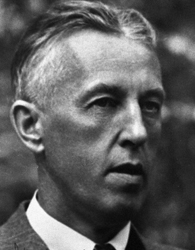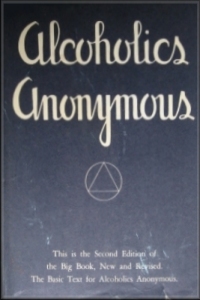Related Research Articles

Alcoholics Anonymous (AA) is a global peer-led mutual aid fellowship begun in the United States dedicated to abstinence-based recovery from alcoholism through its spiritually inclined twelve-step program. AA's twelve traditions, besides stressing anonymity, establish it as non-professional, unafiliated, non-denominational and apolitical with a public relations policy of attraction rather than promotion. In 2020 AA estimated a worldwide membership of over two million, with 75% of those in the US and Canada.
Twelve-step programs are international mutual aid programs supporting recovery from substance addictions, behavioral addictions and compulsions. Developed in the 1930s, the first twelve-step program, Alcoholics Anonymous (AA), founded by Bill Wilson and Bob Smith, aided its membership to overcome alcoholism. Since that time dozens of other organizations have been derived from AA's approach to address problems as varied as drug addiction, compulsive gambling, sex, and overeating. All twelve-step programs utilize a version of AA's suggested twelve steps first published in the 1939 book Alcoholics Anonymous: The Story of How More Than One Hundred Men Have Recovered from Alcoholism.

Narcotics Anonymous (NA), founded in 1953, describes itself as a "nonprofit fellowship or society of men and women for whom drugs had become a major problem." Narcotics Anonymous uses a 12-step model developed for people with varied substance use disorders and is the second-largest 12-step organization, after 12-step pioneer Alcoholics Anonymous.

William Griffith Wilson, also known as Bill Wilson or Bill W., was the co-founder of Alcoholics Anonymous (AA).

Sexaholics Anonymous (SA) founded in 1979 is one of several twelve-step programs for compulsive sexual behavior based on the original twelve steps of Alcoholics Anonymous. SA takes its place among various twelve-step groups that seek recovery from sexual addiction: Sex Addicts Anonymous, Sex and Love Addicts Anonymous, Sexual Compulsives Anonymous and Sexual Recovery Anonymous. Collectively these groups are referred to as "S" groups since all their acronyms begin with that letter: SA, SAA, SLAA, SCA, SRA.
James Patrick Kinnon, commonly known as Jimmy Kinnon or "Jimmy K.", was one of the primary founders of Narcotics Anonymous (NA), a worldwide fellowship of recovering addicts. During his lifetime, he was usually referred to as "Jimmy K." due to NA's principle of personal anonymity on the public level. He never referred to himself as a founder of NA, although the record clearly shows that he played a founding role.
Pagans in recovery is a phrase, which is frequently used within the recovery community, to describe the collective efforts of Neopagans as well as Indigenous, Hindu, Buddhist, and other like-minded groups, to achieve abstinence or the remission of compulsive/addictive behaviors through twelve-step programs and other programs, such as Alcoholics Anonymous, Narcotics Anonymous, Overeaters Anonymous, Al-Anon/Alateen, etc. These efforts generally focus on modifying or adapting the twelve steps to accommodate the Pagan world-view as well as creating Pagan-friendly twelve step meetings either as part of a preexisting twelve-step program or as independent entities.

Marijuana Anonymous (MA) founded in 1989 is an organization and twelve-step program for people with common desire to maintain abstinence from marijuana.
Clutterers Anonymous (CLA) is a twelve-step program for people who share a common problem with accumulation of clutter. CLA says that it focuses on the underlying issues made manifest by unnecessary physical and emotional clutter, rather than hints, tips and lectures. CLA had active meetings in about 70 cities in 24 states in the US, and several in England, Germany, and Iceland, as of 2011. CLA Tradition 3 states, "The only requirement for CLA membership is a desire to stop cluttering." Clutterers Anonymous replaces "powerless over alcohol" in the First Step of the Twelve Steps originally developed by Alcoholics Anonymous (AA) with "powerless over our clutter." CLA was founded in May 1989 in Simi Valley, California. Some members of CLA describe the inability to let go of objects as a consequence of spiritual emptiness.

James Burwell, known as Jim B. or Jimmy B., was one of the Alcoholics Anonymous (AA) founding members. He was among the first ten members of AA on the East Coast, and was responsible for starting Alcoholics Anonymous in Philadelphia and Baltimore. Later in life, he and Rosa, his wife, moved to San Diego, California and were instrumental in the growth of AA there.

Neurotics Anonymous (N/A), founded in 1964, is a twelve-step program for recovery from mental and emotional illness. To avoid confusion with Narcotics Anonymous (NA), Neurotics Anonymous is abbreviated N/A or NAIL.
Overeaters Anonymous (OA) is a twelve-step program founded in 1960 for people with problems related to food including, but not limited to, compulsive overeaters, those with binge eating disorder, bulimics and anorexics. Anyone with a problematic relationship with food is welcomed; OA's Third Tradition states that the only requirement for memberships is a desire to stop eating compulsively.
Al-Anon Family Groups, founded in 1951, is an international mutual aid organization for people who have been impacted by another person's alcoholism. In the organization's own words, Al-Anon is a "worldwide fellowship that offers a program of recovery for the families and friends of alcoholics, whether or not the alcoholic recognizes the existence of a drinking problem or seeks help." Alateen "is part of the Al-Anon fellowship designed for the younger relatives and friends of alcoholics through the teen years".
Drug addiction recovery groups are voluntary associations of people who share a common desire to overcome their drug addiction. Different groups use different methods, ranging from completely secular to explicitly spiritual. Some programs may advocate a reduction in the use of drugs rather than outright abstention. One survey of members found active involvement in any addiction recovery group correlates with higher chances of maintaining sobriety. Although there is not a difference in whether group or individual therapy is better for the patient, studies show that any therapy increases positive outcomes for patients with substance use disorder. The survey found group participation increased when the individual members' beliefs matched those of their primary support group. Analysis of the survey results found a significant positive correlation between the religiosity of members and their participation in twelve-step programs and to a lesser level in non-religious SMART Recovery groups, the correlation factor being three times smaller for SMART Recovery than for twelve-step addiction recovery groups. Religiosity was inversely related to participation in Secular Organizations for Sobriety.

Alcoholics Anonymous (AA) is a global fellowship founded in 1935 by Bill Wilson and Robert Smith, and has since grown to be worldwide

Pills Anonymous (PA) is a twelve-step program founded in 1972 for people who seek recovery from prescription drug addiction. PA is patterned very closely after Alcoholics Anonymous, although the two groups are not affiliated.

Alcoholics Anonymous: The Story of How More Than One Hundred Men Have Recovered from Alcoholism is a 1939 basic text, describing how to seek recovery from alcoholism. The Big Book was written by William G. "Bill W." Wilson, one of the founders of Alcoholics Anonymous, with the help of various editors. The composition process was not collaborative other than editing. Bill wrote all of the chapters except for "To Employers" which was written by Bill's right hand man, Hank Parkhurst. Parkhurst influenced the more liberal notions of "God as we understand him" and "your own conception of God." Drafts of sections were sent back and forth between Bill W.'s group in New York and Robert Holbrook Smith, the other AA founder, in Akron, Ohio. Dr. Bob made no major changes. It is the predecessor of the seminal "twelve-step method" widely used to treat many addictions, from alcoholism, heroin addiction and marijuana addiction to overeating, sex addiction and gambling addiction, with a strong spiritual and social emphasis. It is one of the best-selling books of all time, having sold 30 million copies. In 2011, Time magazine placed the book on its list of the 100 best and most influential books written in English since 1923, the year in which the magazine was first published. In 2012, the Library of Congress designated it as one of 88 "Books that Shaped America."
Heroin Anonymous (HA) is a non-profit group founded in Phoenix, AZ in 2004 to help people addicted to heroin remain substance-free. Modeled after Alcoholics Anonymous, HA is a fellowship of people addicted to heroin who meet regularly to help each other practice complete abstinence from all drugs and alcohol. Heroin Anonymous does not provide drug counseling, medical or psychiatric treatment, or chemical dependency treatment.
References
- 1 2 3 4 Alcoholics Anonymous (February 10, 2002). Twelve Steps and Twelve Traditions. Hazelden. ISBN 0-916856-01-1. OCLC 13572433.
- ↑ Hartigan, Francis (2001). Bill W.: A Biography of Alcoholics Anonymous Cofounder Bill Wilson. Macmillan. pp. 161–162. ISBN 0-312-28391-1. OCLC 42772358.
- 1 2 Alcoholics Anonymous (10 February 2002). Twelve Steps And Twelve Traditions. Alcoholics Anonymous World Services. ISBN 978-0-916856-01-4.
- ↑ Alcoholics Anonymous World Services, I. (2013). Alcoholics Anonymous, Fourth Edition: The official "Big Book" from Alcoholic Anonymous. Alcoholics Anonymous World Services, Incorporated. p. 375. ISBN 978-1-893007-66-6 . Retrieved 2023-06-23.
- 1 2 Narcotics Anonymous (1993). It Works: How and Why: The Twelve Steps and Twelve Traditions of Narcotics . Van Nuys, CA: Narcotics Anonymous World Service Office, Inc. ISBN 1-55776-181-7. OCLC 29169335.
- ↑ "It Works: How and Why: The Twelve Steps and Twelve Traditions of Narcotics" (PDF). Van Nuys, CA: Narcotics Anonymous World Service Office, Inc.
- ↑ "Life With Hope: A Return to living through the 12 steps and 12 traditions of Marijuana Anonymous" (pdf). Van Nuys, CA: Marijuana Anonymous World Services, Inc.
- ↑ Marijuana Anonymous. "The Twelve Traditions of Marijuana Anonymous" . Retrieved 28 September 2012.
- ↑ "Problems Other Than Alcohol: What Can Be Done About Them?" (PDF). Alcoholics Anonymous World Services, Inc. Retrieved August 2, 2008.